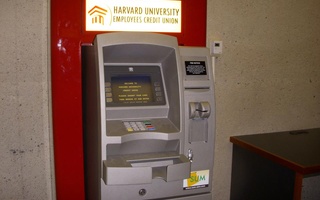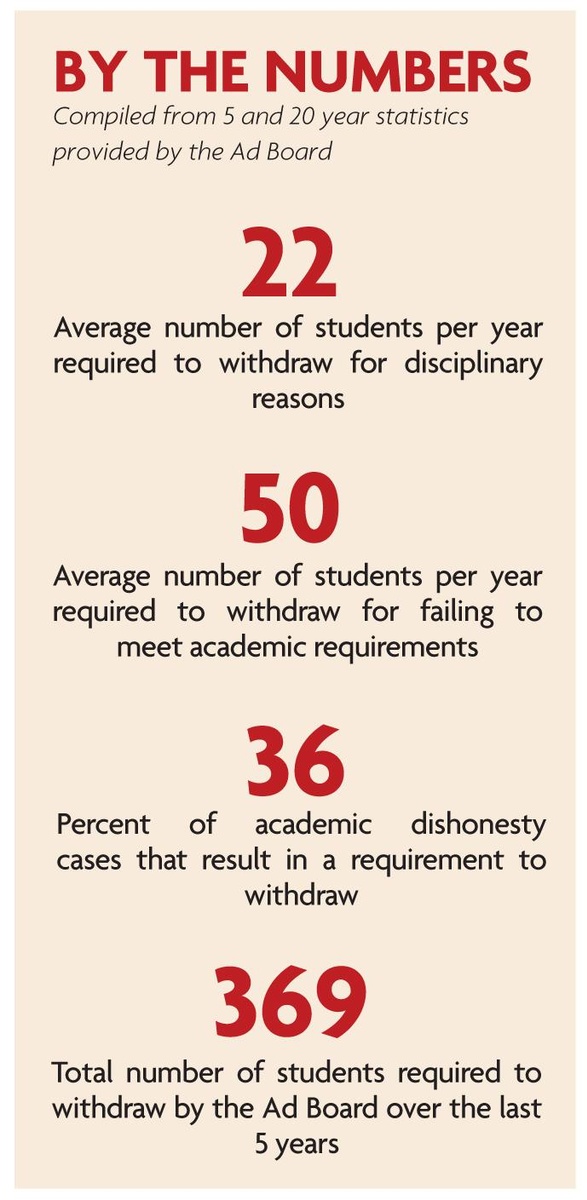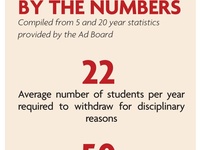(Part I of this story appeared on March 22, 2010.)
When the Administrative Board informed Anna earlier this spring that she would have to withdraw from Harvard for two semesters, she was wholly unprepared for the tumult and anxiety that accompanied the process of withdrawal—an experience she characterized as “being thrown to the wolves.”
She had been in the middle of shopping week when the Ad Board, the College’s primary disciplinary body, delivered the news of her punishment for charges of academic dishonesty last fall. Anna—whose name has been changed to protect her identity—had to leave campus, hunt for a job, and find a new way to afford her prescription medication, which had previously been covered by the University.
Anna is not alone. Jeff, another Harvard student who spoke on the condition of anonymity, had failed two classes and was subsequently forced to withdraw in what he called a “very traumatic process.”
Their stories provide a rare window into the often overlooked consequences of withdrawal from the College. Every year, an average of 70 Harvard students face a “requirement to withdraw”—the Ad Board’s most common response to cases of academic dishonesty and a relatively standard response to serious academic failures.
College administrators say that withdrawal offers students a valuable opportunity to take a step back to reflect on their life goals and time at Harvard. But students like Anna and Jeff point to an array of potential problems in the withdrawal process, such as the punishment’s lack of relevancy to the original infraction, the sudden loss of health services at the University, and the pervading sense of isolation it instills.
If the Faculty of Arts and Sciences approves the recommendations proposed by the Committee to Review the Ad Board, the College will have a greater array of intermediate disciplinary measures at its disposal—likely leading to a decrease in the number of students who are required to leave campus.
The Committee recommendations offer a welcome change for students and faculty who feel that withdrawal is too harsh a punishment for most incidents of academic dishonesty.
But some students hope that the College will consider further reform that provides greater support for students who ultimately must undergo the withdrawal process.
“I wouldn’t wish the turbulence of this experience on anyone else,” Anna says.
“MIXED MESSAGES”
Students and administrators tend to disagree about the merits and drawbacks of a requirement to withdraw.
College administrators say that students should not view the requirement to withdraw as a punishment, but as an opportunity to retreat from the frenzy of the Harvard scene and reflect on their misdemeanors and life goals.
“It’s really designed to be a break...from the academic treadmill,” says Secretary of the Ad Board John “Jay” L. Ellison.
During their time away, students must hold a full-time paid job for six consecutive months—a requirement intended to encourage “a consistent pattern of behavior and success” in students, Ellison says.
Read more in News
Rapper Kid Cudi To Perform At YardfestRecommended Articles
-
Eliot House Masters To Step Down in JuneAfter a decade as Eliot House Masters, Lino Pertile and Anna Bensted announced they would step down this June in a Thanksgiving e-mail to the House's listserv.
-
 The Quad ATM Has Arrived
The Quad ATM Has Arrived -
 J-Term Journal: Fading to Black (Swan)
J-Term Journal: Fading to Black (Swan) -
 Fresh ‘Like Crazy’ Offers Realistic Romance
Fresh ‘Like Crazy’ Offers Realistic Romance -
 Fighting Pain with Pain
Fighting Pain with Pain -
 Love & Earl Grey
Love & Earl Grey















